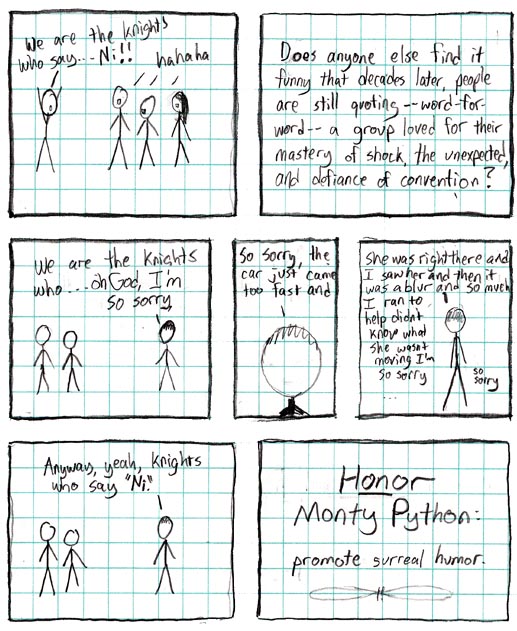That's five days, most of which, to be honest, were spent learning about Unity rather than working with it. Conclusion: Unity is easy.
Jim Sterling made a video about Unity actually being good as well as just easy (which is what prompted me to try it, to be honest), and how it has an unfairly bad reputation. Which is only fair, since the reason it has an unfairly bad reputation is largely because of his videos where he slags off certain terrible so-called games which happen to be made with Unity.
I want to expand a little bit on that idea here. The problem with Unity is exactly the same as the problem with any other democratising force in any creative medium: When 'can' gets too easy, 'should' is ignored.
That's not to say that democratisation is in itself a bad thing. I fully and without reservation believe that it's a good thing for the tools of game development (or, again, any other creative medium) to be placed in the hands of people who might have talent, but limited resources. But there is a price to be paid for it.
I know this is a common theme in my posts, but we've already seen this happen with music. I'm going to come out and say it: anyone who says music was better in the old days is objectively wrong. Even twenty years ago, what you listened to was mostly what record labels told you to like. There were a few little indie rabbit holes you could explore, if you were willing to expend the time and effort, but mostly it was either mainstream or "big indie". Now, it's super-easy to find music you actually want to listen to, because there's far more chance someone out there has the ability and inclination to make it, and because our methods of music distribution have adapted to that. (Caveat: Music was better in the old days if you don't want to have to actually decide what you like.)
Where gaming is at, particularly with Unity, is where music was ten years ago. At that point, it was a lot easier to record and release music than it was twenty years ago, so there was a vibrant explosion of creativity, but distribution hadn't adapted to that. So you had to wade through dozens of awful MySpace bands - who bypassed the 'should' check because the 'can' check was too easy - before you finally found something listenable.
And in all this, Steam has taken a retrograde step. It has democratised access to its store, which in principle sounds laudable, except Steam is a distributor. It's not Steam's job to democratise game development; it's Steam's job to adapt to the democratisation of game development. Steam has become to games what MySpace was to music ten years ago. You can find something that appeals specifically to you, rather than to a target demographic carefully cultivated by marketing, which is great, but only if you're willing to wade through effluent to get there.
What makes this all the more bizarre is that, at one point, Steam was trying to learn the lessons the trials of music distribution had to teach. Recommendations were based on forming last.fm-style associations between games, and the more recently implemented tag system could have brought a lot more power to show users games they are likely to be interested in.
Except... they didn't really do anything with it. And recommendations have been reduced to highlighting games that a lot of people have bought (honestly, tell me something I don't know), that a lot of people have reviewed positively (implying that Steam reviews have any intrinsic value), or that are just plain new (which really isn't an indicator of anything useful). Oh, and pushing DLC for games I already own. Don't recommend me that. It's quite simple: If I like the game, I will buy the DLC. Your recommendation of it is just a waste of space.
Even the curator system is a good idea in theory, but doesn't work well in practice. For one thing, and perhaps I'm using curation wrong, but whatever, I tend to follow curators whose critical style I enjoy; not necessarily curators who have the same tastes as me. And that works both ways, too. Certain curators I dislike for reasons other than their taste in games are enough to put me off a game if they endorse it. I know that's not rational, but it happens.
Now, here's the thing: I don't even necessarily have a problem with Steam selling asset-flipped garbage. If Valve wants to open the floodgates, abandon quality control, and sell all the things, then that's fine. But when such garbage is given greater standing on the supposedly personalised storefront than a game for which Steam already has all the data necessary to be able to guess I might actually want, then that's when Steam isn't doing its job properly.
Like I say, I'm all for democratisation of game development. Even the "death of modding" I hear people talk about in fearful tones is, to my mind, less because of AAA publishers locking their games down, and more because people who would previously have turned to modding now have access to the tools they need to produce their own games. Which I can't really see as a bad thing.
I did say that there is a price to be paid for it, and that price is that it empowers everyone. Yes, including cynical exploiters and talentless hacks, but not limited to them. And that, I think, is a price worth paying.
But democratisation, if it requires anything, requires our distribution channels to seriously up their game. Digital distribution isn't the same as bricks and mortar retail, but one thing from the old ways still applies: the greater the range you have, the more effort you're going to have to make to help customers find what they're looking for.

